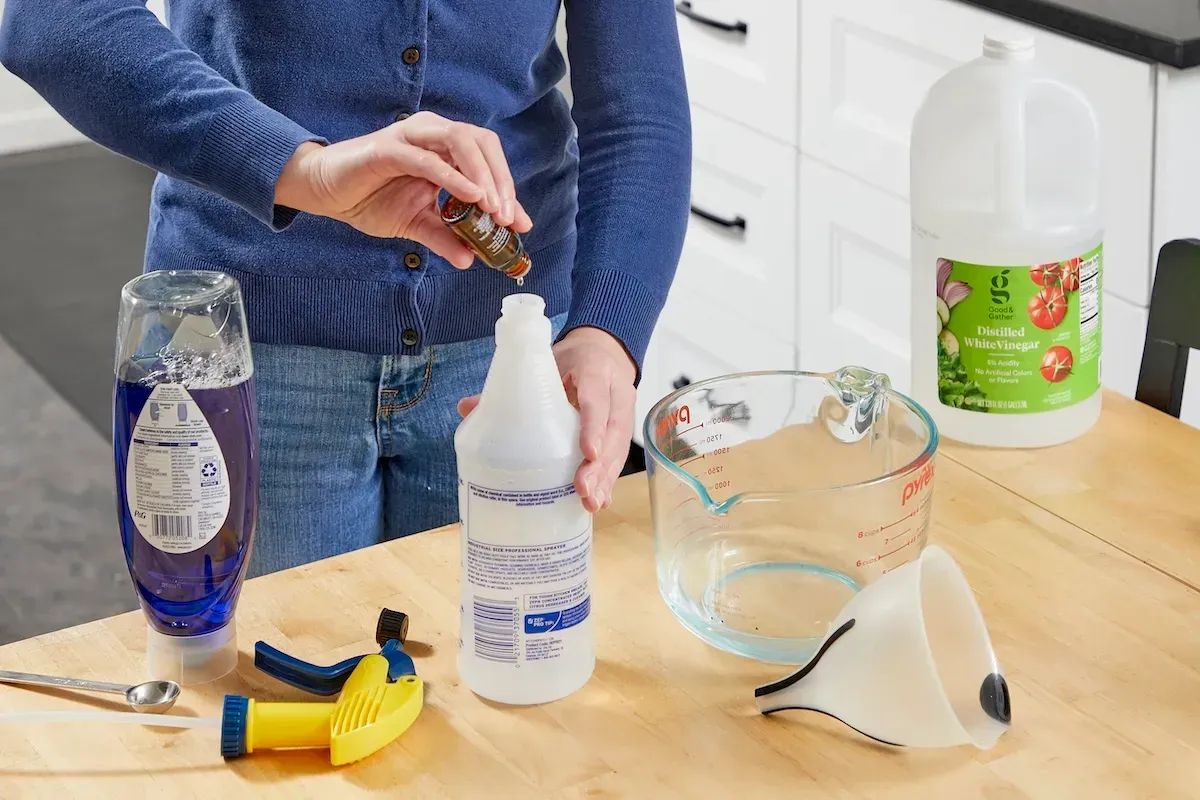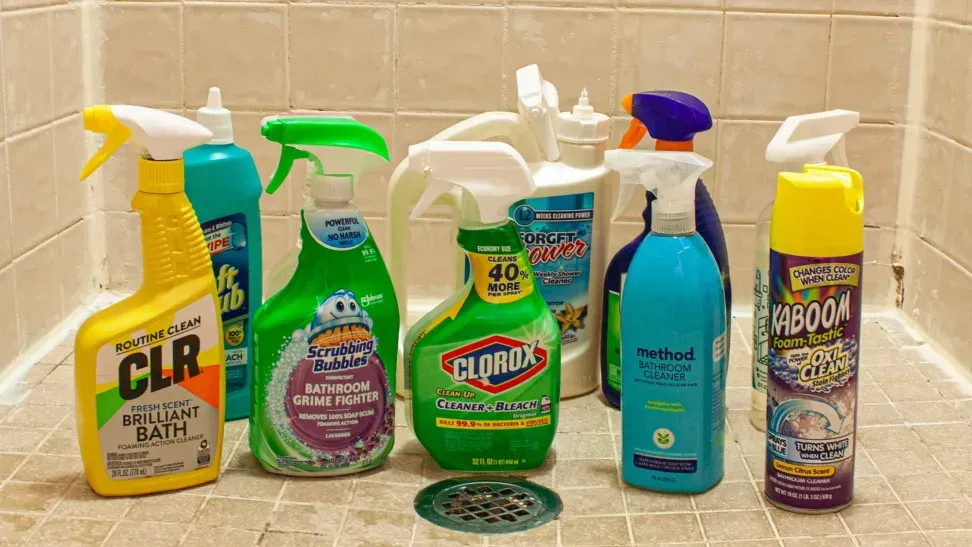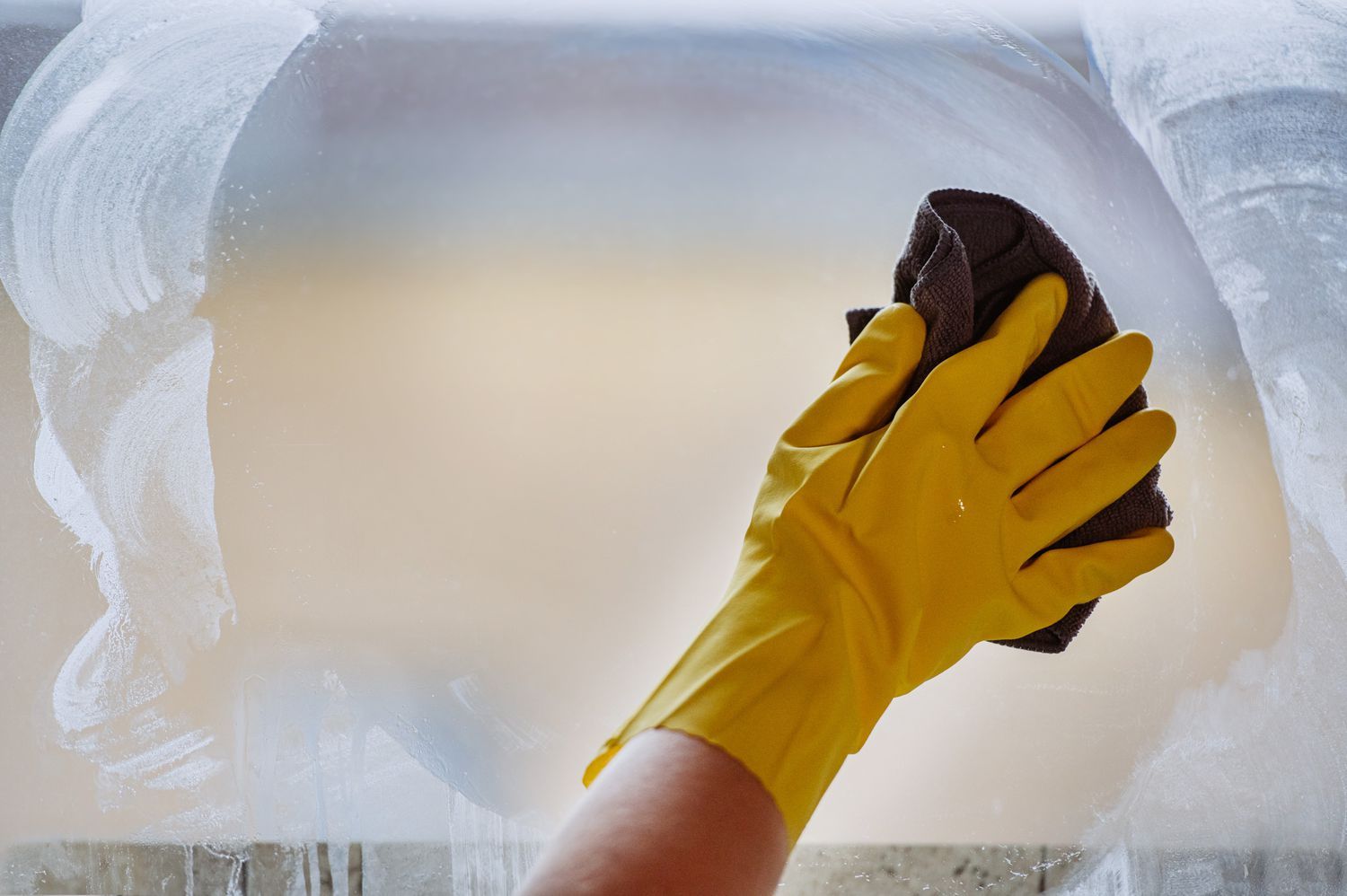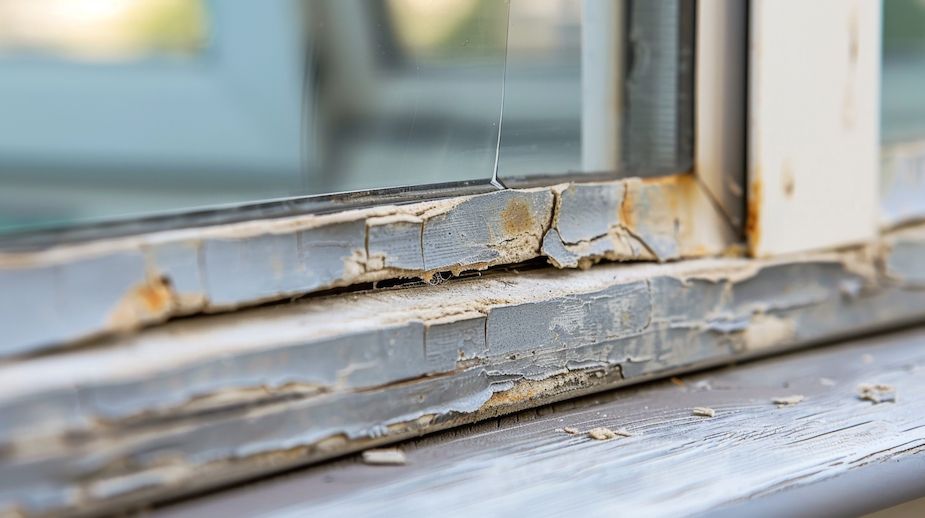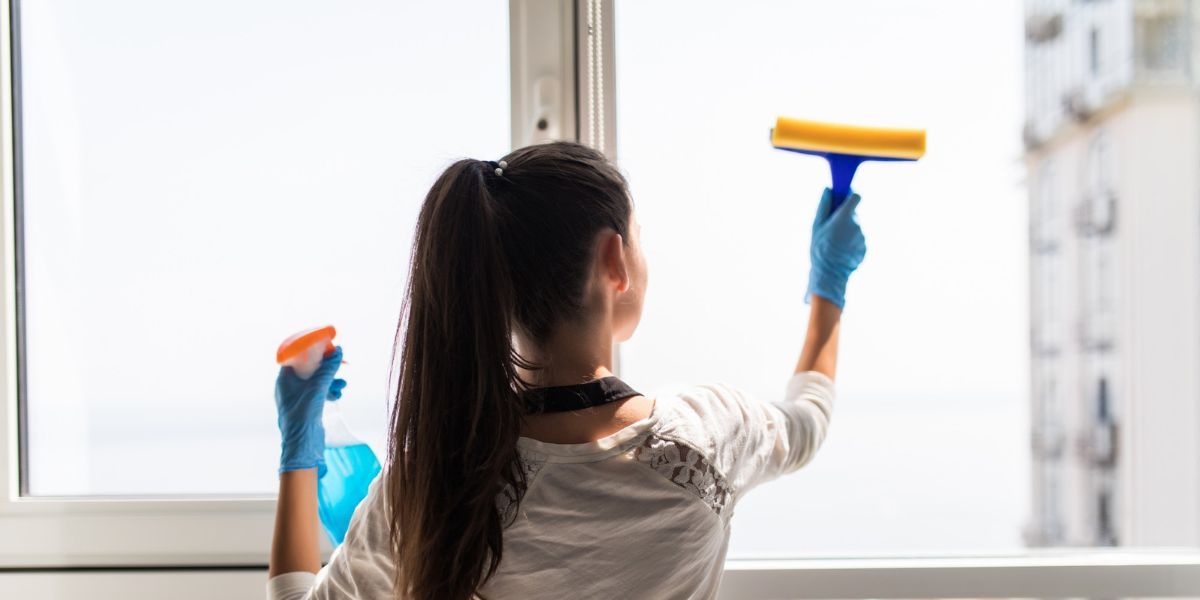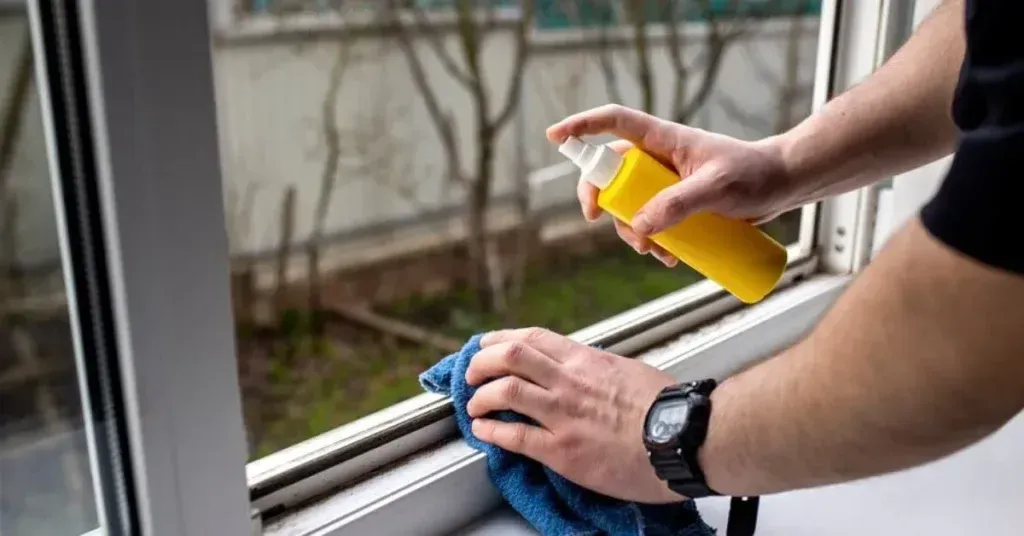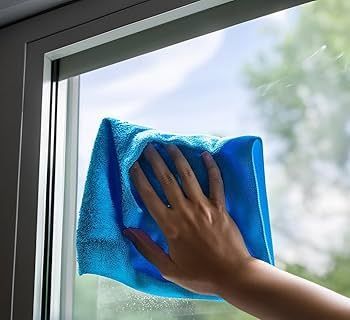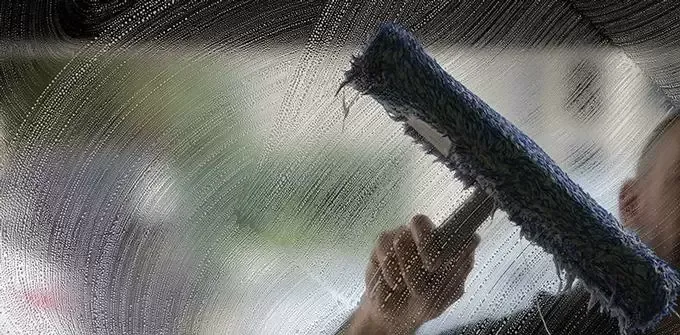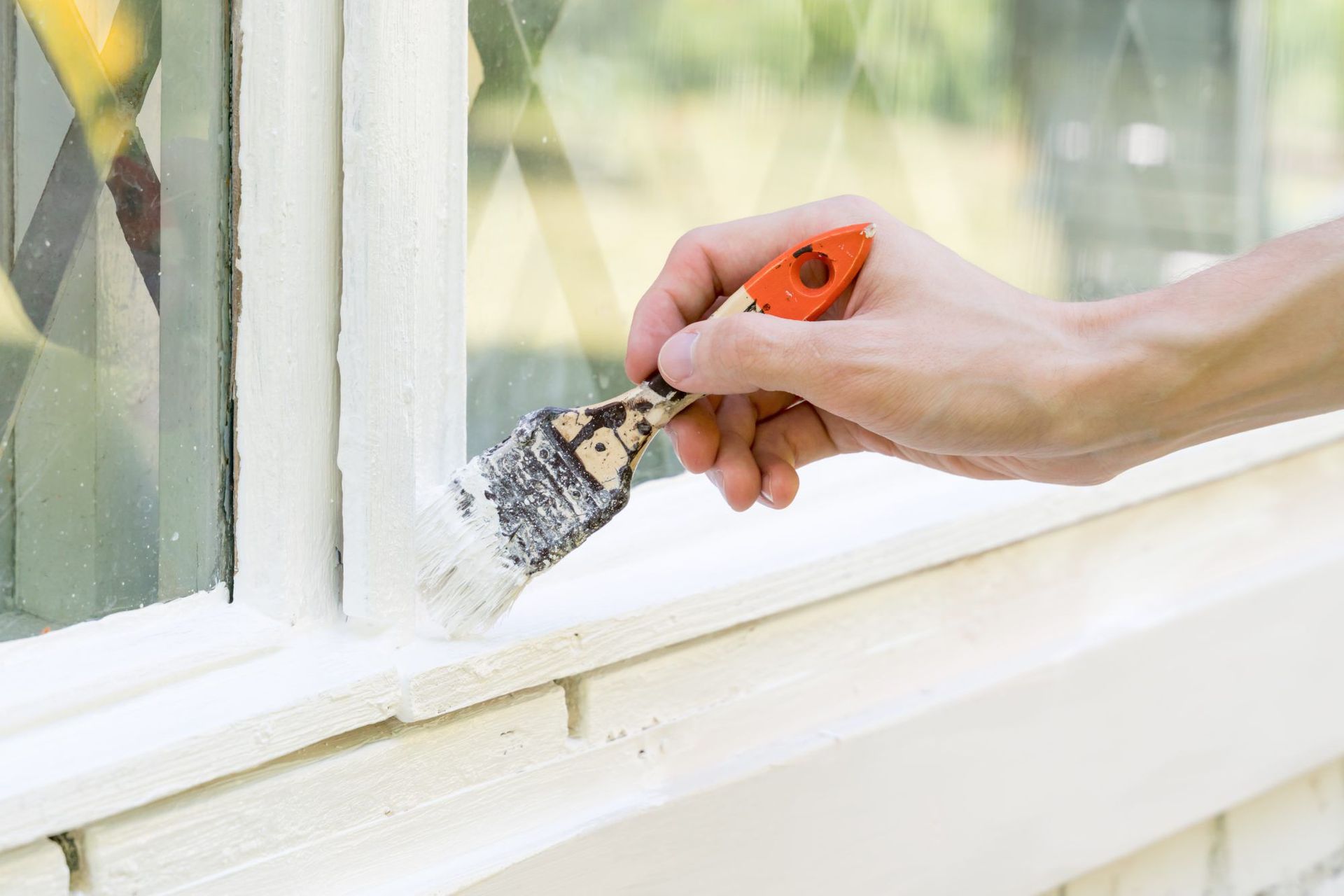Can Pure Acetone Be Used to Clean Windows?
Yes, pure acetone can be used to clean windows, particularly for removing stubborn stains, adhesives, and grime. However, it comes with risks, including potential damage to window coatings, frames, and health hazards from fumes. Understanding its effectiveness, drawbacks, and safer alternatives will help you decide whether acetone is the right choice for your window cleaning needs.
At Amazing Finish Windows, we know the importance of using the right cleaning solutions. In this guide, we will explore acetone’s impact on glass, safety precautions, and better alternatives for window maintenance.
What is Acetone and How Does It Work?
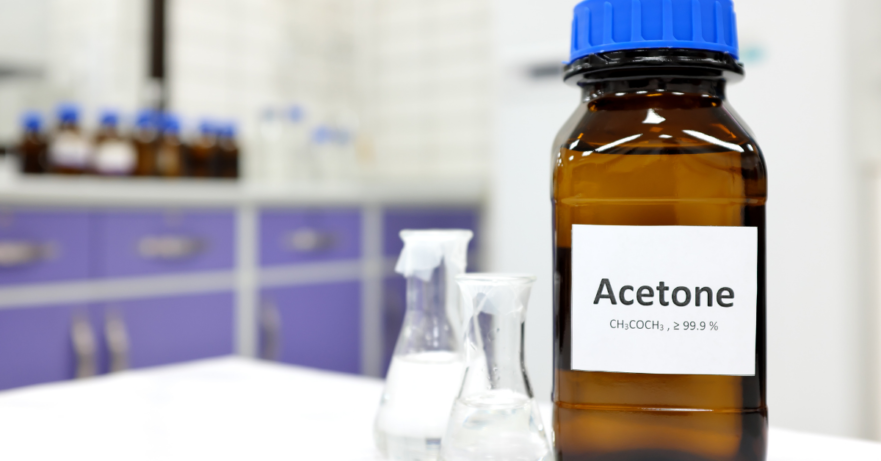
Acetone as a Solvent
Acetone is a colorless, highly volatile liquid used in various cleaning applications, including paint removal, degreasing, and adhesive breakdown. It is an organic compound that evaporates quickly, making it a powerful but potentially hazardous cleaner.
How Acetone Interacts with Glass
Acetone effectively dissolves grease, glue, and other residues on glass surfaces. Unlike some cleaning agents that leave streaks, acetone evaporates quickly, reducing the likelihood of residue. However, improper use can result in streaks, requiring additional cleaning steps.
Acetone vs. Other Window Cleaning Solvents
- Rubbing Alcohol: Also effective in breaking down dirt but less aggressive than acetone.
- Ammonia-Based Cleaners: Common for windows but emit strong fumes and can react poorly with certain coatings.
- Vinegar Solutions: A safer, eco-friendly alternative for regular cleaning.
Can Acetone Be Used to Clean Windows Safely?
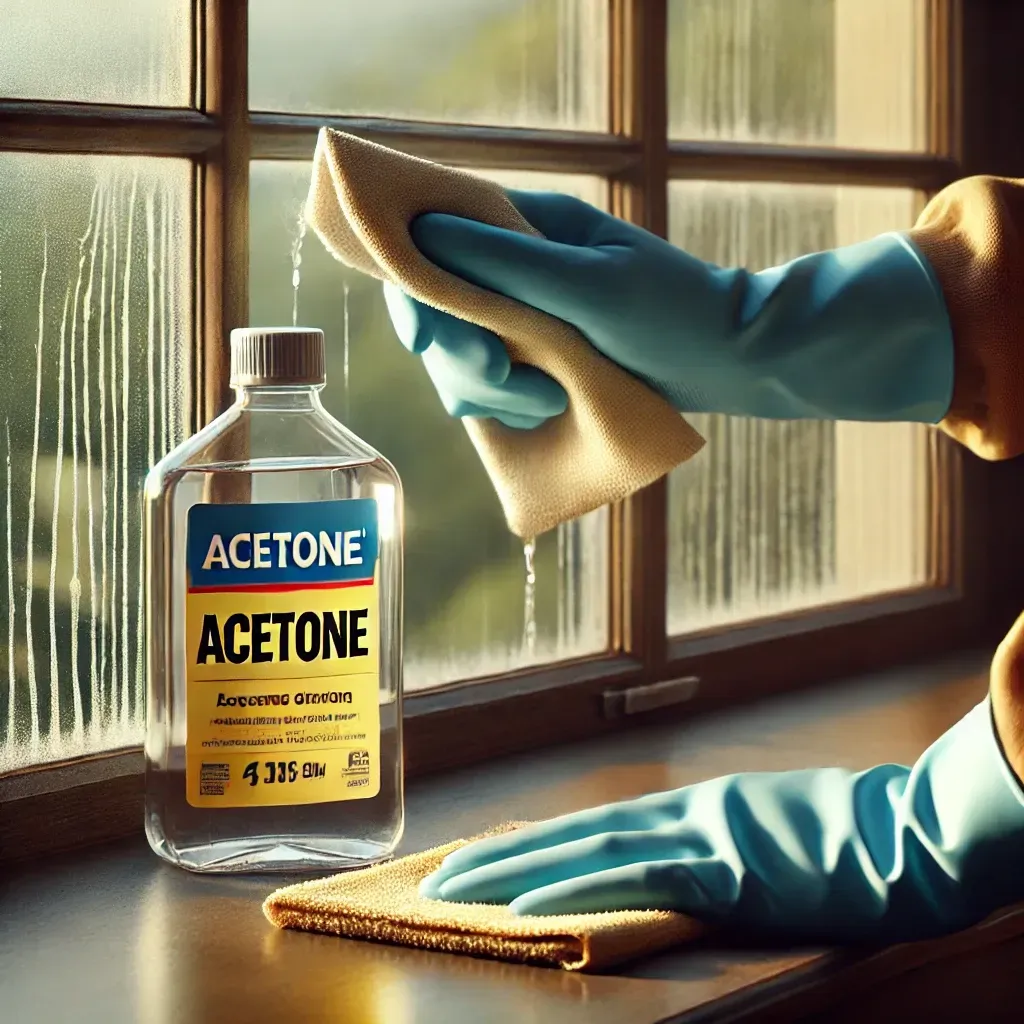
Effectiveness of Acetone on Glass
Acetone is particularly useful for removing:
- Stubborn Stains: Hard water spots, Removing dried paint from windows, and other difficult residues.
- Adhesive Residue: Sticker glue, tape marks, and sealant residue.
- Grease and Oils: Fingerprints and oily smudges are easily dissolved by acetone.
While acetone is effective, it is not designed for everyday window cleaning. Overuse can lead to damage to surrounding materials.
Risks & Drawbacks
- Window Tint Damage: Acetone dissolves adhesives, which can destroy tinted films.
- Harm to Window Frames: Vinyl, wood, and painted surfaces can discolor or deteriorate.
- Health Hazards: Inhalation of acetone fumes can cause dizziness and irritation.
- Highly Flammable: Acetone evaporates quickly but is combustible, requiring caution during use.
How to Safely Use Acetone on Windows
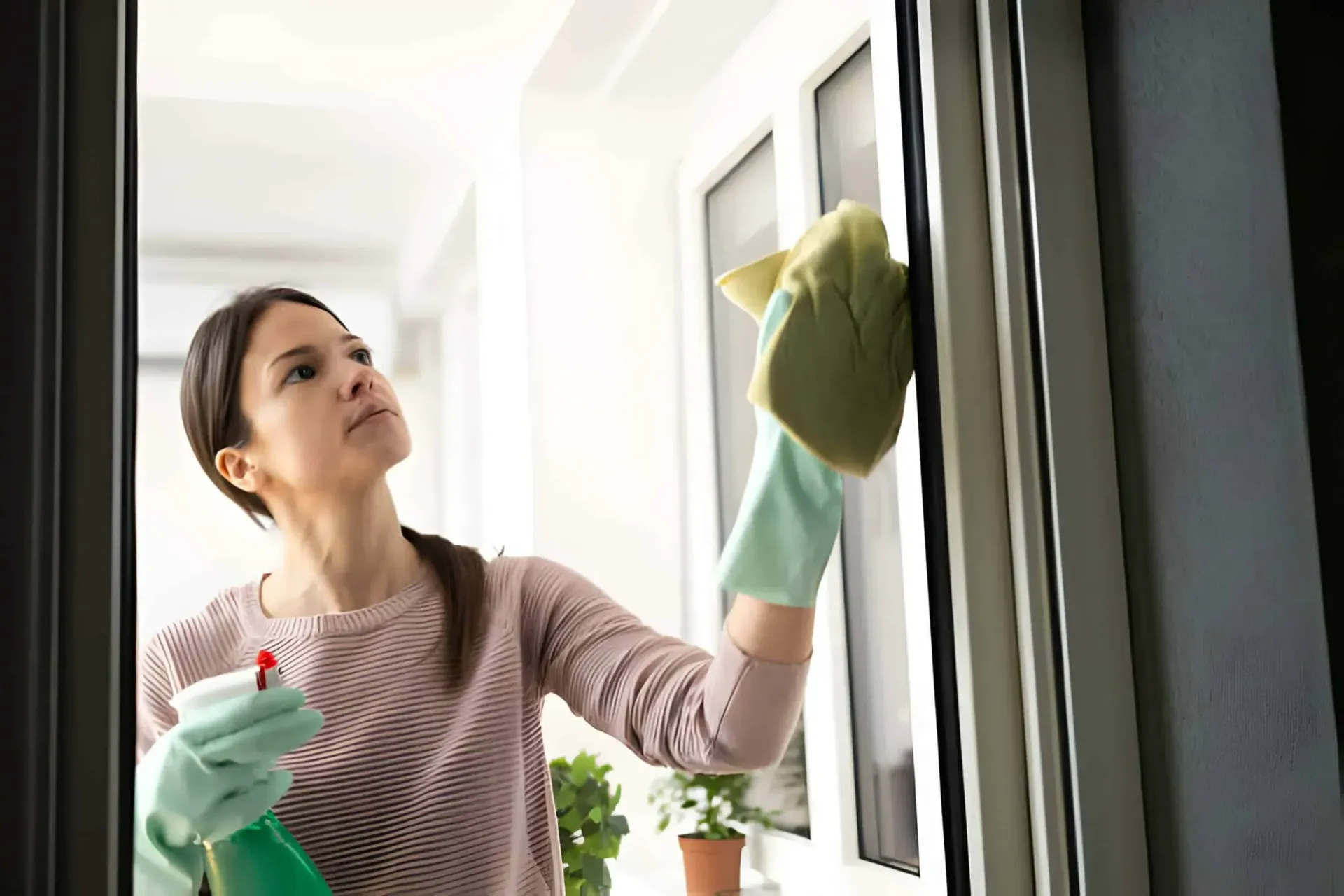
Step-by-Step Cleaning Guide
- Preparation: Wear gloves and ensure the area is well-ventilated.
- Application: Dampen a soft cloth or cotton pad with acetone.
- Wiping Technique: Use gentle, circular motions on stained areas.
- Rinse Off Residue: Follow up with a damp microfiber cloth to remove any remaining acetone.
Safety Precautions
- Avoid Contact with Plastic and Painted Surfaces: Acetone can cause irreversible damage.
- Store Properly: Keep away from heat and open flames.
- First Aid Measures: If exposed to skin, rinse with water. Inhalation may require fresh air or medical attention if symptoms persist.
Environmental Impact of Acetone
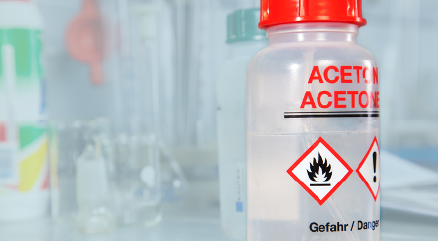
Is Acetone Eco-Friendly?
Acetone is biodegradable but can contribute to air pollution when released in large quantities. It evaporates into the atmosphere, where it may impact air quality.
Proper Acetone Disposal
- Do Not Pour Down Drains: Acetone can contaminate water systems.
- Use Hazardous Waste Disposal Services: Check local regulations for proper disposal options.
- Consider Eco-Friendly Alternatives: Reduce acetone use in favor of greener cleaning methods.
Alternative Window Cleaning Solutions
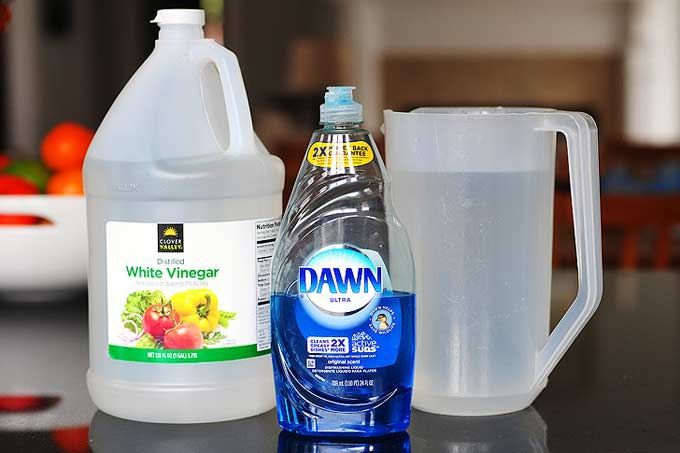
Safer Alternatives to Acetone
- Vinegar and Water Solution: A natural and effective cleaning solution.
- Rubbing Alcohol For Cleaning Windows: Works well for streak-free glass cleaning.
- Commercial Glass Cleaners: Many products are designed to clean glass safely without harsh chemicals.
Comparing Acetone vs. Other Cleaners
| Cleaner | Effectiveness | Safety | Environmental Impact |
|---|---|---|---|
| Acetone | High | Risky | Harmful if not disposed of properly |
| Vinegar | Good | Safe | Eco-Friendly |
| Rubbing Alcohol | Good | Safe | Less Harmful |
| Commercial Cleaners | Varies | Safe | Varies |
Frequently Asked Questions (FAQs)
Will Acetone Damage Window Tint?
Yes, acetone can dissolve the adhesive used in tinted windows, causing peeling or distortion.
Can I Mix Acetone with Other Cleaners?
No, mixing acetone with certain chemicals can create dangerous fumes or chemical reactions.
How Do I Remove Acetone Streaks from Windows?
Use a damp cloth with vinegar to remove any remaining acetone residue and restore clarity.
Conclusion
Acetone can be an effective solution for cleaning stubborn stains on glass, but it should be used with caution. The risks of damaging window tints, frames, and exposure to fumes make it less suitable for regular window cleaning. Instead, safer alternatives such as vinegar, rubbing alcohol, or commercial window cleaners provide effective and environmentally friendly solutions.


